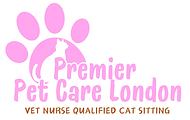Things That Are Toxic to Cats
- zoeyspremierpetcar
- Apr 17, 2025
- 3 min read

Cats are naturally curious, playful, and often a little too adventurous for their own good. Unfortunately, this curiosity can sometimes lead them straight into danger — especially when it comes to everyday items that are toxic to them.
If you’re a cat owner in the UK, it’s essential to know which foods, plants, and products can be harmful to your furry friend. This guide covers the most common toxins found in UK households and gardens, so you can keep your cat safe and healthy.
1. Foods That Are Dangerous for Cats
Not all “treats” are safe to share. Some human foods can cause serious health issues — even in tiny amounts:
Onions, Garlic & Chives – Can damage red blood cells and lead to anaemia.
Chocolate – Contains theobromine and caffeine, both toxic to cats.
Alcohol – Just a small amount can be extremely dangerous.
Grapes & Raisins – Can lead to sudden kidney failure.
Xylitol – A sweetener found in sugar-free products like gum and peanut butter. Highly toxic.
Tip: Always check ingredients before giving your cat anything from your plate.
2. Houseplants That Can Harm Cats
Many popular indoor plants in UK homes are toxic to cats — especially if chewed on or ingested.
Lilies – Extremely dangerous. Even licking the pollen can cause kidney failure.
Poinsettias – Mildly toxic, often causing drooling and vomiting.
Aloe Vera – Great for humans, but can upset a cat’s stomach.
Peace Lily & Dumb Cane (Dieffenbachia) – Cause oral pain and drooling.
Safer alternatives: Spider plants, parlour palms, and Boston ferns.
3. Medications & Chemicals
Cats can easily be poisoned by common household medications and cleaning products:
Paracetamol – Just one tablet can be fatal.
Ibuprofen – Can lead to stomach ulcers and kidney damage.
Human antidepressants & cold meds – Highly toxic.
Antifreeze (Ethylene Glycol) – Extremely poisonous. Even small drips from a car can be deadly.
Pet-proofing tip: Keep all medications and cleaning products locked away.
4. Pest Control Products
Watch out for flea treatments and pest killers that aren’t cat-safe:
Dog flea treatments (Permethrin) – Deadly to cats.
Rodent poisons & slug pellets – Can be fatal if eaten directly or through poisoned prey.
Garden fertilisers & weed killers – Can be absorbed through the skin or ingested during grooming.
Always use products specifically designed for cats, and keep them indoors after treating outdoor areas.
5. Essential Oils & Scented Products
They may smell lovely, but many essential oils are toxic to cats — especially in diffusers.
Oils to avoid:
Tea Tree
Eucalyptus
Citrus
Peppermint
Cinnamon
Even passive exposure to vapourised oils can cause respiratory distress or liver issues in cats. Always ventilate well and avoid using oils in the same room as your cat.
6. Outdoor & Garden Hazards
Don’t forget what’s outside your front door:
Pesticides & garden chemicals – Easily tracked in on paws and ingested during grooming.
Compost heaps – Mouldy food can produce mycotoxins, which are harmful if ingested.
Toxic plants – Foxglove, daffodils, and yew are just a few of the outdoor plants dangerous to cats.
Keep your garden cat-safe by researching any new plants or treatments before use.
What to Do If You Think Your Cat Has Been Poisoned
Signs to watch for:
Vomiting
Lethargy or weakness
Drooling
Seizures
Difficulty breathing
If your cat is showing any of these signs or you suspect they’ve ingested something toxic, call your vet immediately.
You can also contact the Animal PoisonLine (UK) at 01202 509000 for expert advice 24/7 (note: consultation fees apply).
Final Thoughts
Your home and garden might seem safe, but many everyday items can be toxic to cats. A little awareness goes a long way in protecting your pet from accidental poisoning.
Takeaways:
Know which foods, plants, and products are dangerous.
Use pet-safe alternatives wherever possible.
Always consult your vet before introducing anything new to your cat’s environment.
Your cat depends on you for safety — and with a bit of knowledge, you can give them a safe space to live, explore, and nap in peace.



Comments